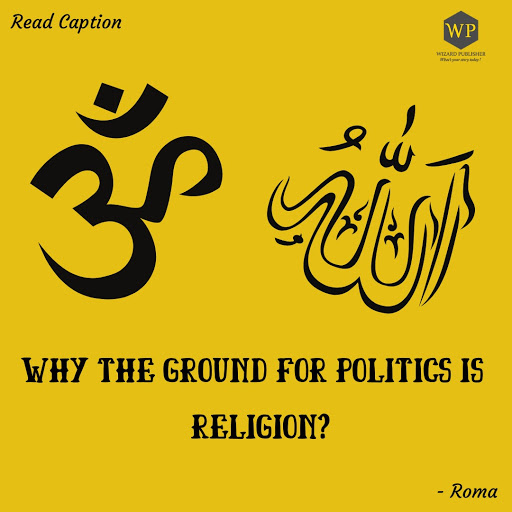Trust in politics is diminishing across a large part of the
democratic world. Several people object that politicians have lost the true
meaning of democracy and change their life for good. But certain elements of
political ideology prevails in the 21st-century era, where the world has moved
on from touching the moon to landing on mars and literature to
existentialism, politics on the other
hand, globally is moving cross-steps
backward. Declining away from questions of development, human rights, job
security, national integrity, and democracy is built and is being dragged upon
religion.
Earlier in July, the museum of Hagia Sophia is given the
status of a mosque by the Turkish council of state and annulled the cabinet's
1934 decision to establish it as a museum. The complex history of Hagia Sophia
indicates that Constantius II built the architecture in 360 A.D. Later after
the fall of Constantinople to the Ottomans in 1453, Mehmed, the conqueror,
converted it into a mosque. It was not until 1934 that the Republic Of Turkey
announced the place to be a museum. According to the Turkish tourism stats,
Hagia Sophia was the most visited national site in between 2015-2019.
With special interference from the current president of
Turkey Tiyyib Erdogan, the museum has yet again received the title of a mosque.
Certain parallels and questions can be drawn from this act. Firstly, when the
site is already surrounded by numerous mosques then what was the need to turn a
heritage site into a mosque that too nearly a century later? Secondly, the timing of its reconciliation
perfectly lines up when not just the country but also the world is going
through the worst pandemic of the century. Thirdly, why did the president
himself took participation in the first prayer, hurting the sentiments if not
of the majority then the minority of the country, who had up till now rested on
the fact that the site doesn't belong to any specific religion anymore? Did the
president want to assert his Muslim identity and run for the next elections as
a Muslim leftist? If this is not a heightened example of religious baptism in
politics then what will be?
The said parallel and questions should be drawn from the
recent construction of Ram Mandir in Ayodhya, India. Why the construction was
part of the party's election Manifesto? Why the prime minister attended the
Bhoomi puja hurting the sentiments of millions of his citizens? Finally, why
was it organized when under no circumstances a public gathering is allowed in
this country? Have we steeped so low on democracy that religion holds the
topmost pillar? Is this not an outright act of religious felony?
There are certain key points as to why politics is defined
on religion. Firstly, there is a discourse of fear that focuses on the need to
protect voters from what is different "us against them" dogma, to
safeguard individual privileges. Secondly, we have political elite impotent to
the understanding of the new demands and needs of the society, creating a
vacuum, which is then filled by religious assertion.
Finally, we see corruption scandals that reveal the old ways
of doing politics favouring certain groups in exchange for extremely high
payments, strengthening the notion that democracy is a farce, "By A Few,
For A Few". From this pessimistic perspective, it is very easy to fall
into despair and hopelessness and being prey to religious politics.
By: Roma





No comments:
Post a Comment